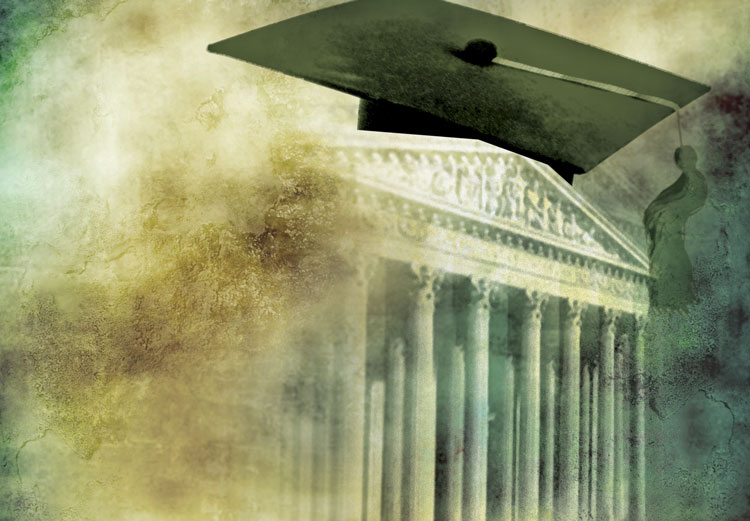Letters: Campus rape debate

Regarding “From Campus to Courtroom,” December, let me add that this article hardly begins to describe the problem. It reiterates a usual myopia in the literature in this area: (1) focusing on student-to-student disputes and (2) focusing on sexual violence.
The problem on campus today arises from the fact that anyone, even someone not part of the campus community, may file a complaint against another person—student, staff or faculty—and have that complaint prosecuted by campus authorities (often the same person conducting ADR, investigation, adjudication, enforcement and institutional risk management). In addition, grounds for complaint can be as modest as belief or feeling that an aggrieved was offended—nothing at all to do with sex, violence or physicality. That’s a recipe for abuse of the rights of everyone involved, and that’s without even discussing due process.
Richard J. Peltz-Steele
North Dartmouth, Massachusetts
Why should a sexual assault victim and the person accused get different treatment outside the legal system because they happen to be enrolled in some college? They should not.
Sexual assault is a criminal matter, and colleges and universities have no more business getting involved beyond reporting allegations to the police than an employer does.
We are not even talking about allegations between minors. About 15 years ago, the early child care trend across the country was to delay the start of schooling, with the result that graduating high school classes are composed entirely of 18- and 19-year-olds, rather than 17- and 18-year-olds. That means all college students are 18 or older and hence legal adults. The allegations should be investigated by professional law enforcement; and if warranted, criminal charges should be filed and prosecuted through the legal system. We either have rule of law or we do not. You can’t have rule of law sometimes.
The bottom line is that any college involvement in criminal allegations of any kind beyond reporting the allegations to law enforcement is engaging in extrajudicial vigilantism, and such involvement is inappropriate. I’d like to see university administrators held to the same standards as employers would be for interfering in what are clearly criminal matters.
Tyrone Jackson
Boston
The objective is to prevent these regrettable situations from occurring in the first place. In almost all of these unfortunate encounters, both parties were inebriated. Commonly, one or both of them was not old enough to drink legally. This strongly suggests that universities, in their parens patriae capacity, should adopt much stronger anti-drinking policies and then vigorously enforce them. Why underage drinking is countenanced on campuses is a matter that deserves serious examination. Surely this is a situation where an ounce of prevention is worth more than a pound of cure.
Thank you for a great article.
Thomas Goetzl
Bellingham, Washington
WEB 100 SUGGESTIONS
In “Welcome to the Web 100,” December, why is the National Constitution Center’s podcast We the People not on this list? And More Perfect? They’re both great.
Nathan Clark
Lincoln, Nebraska



